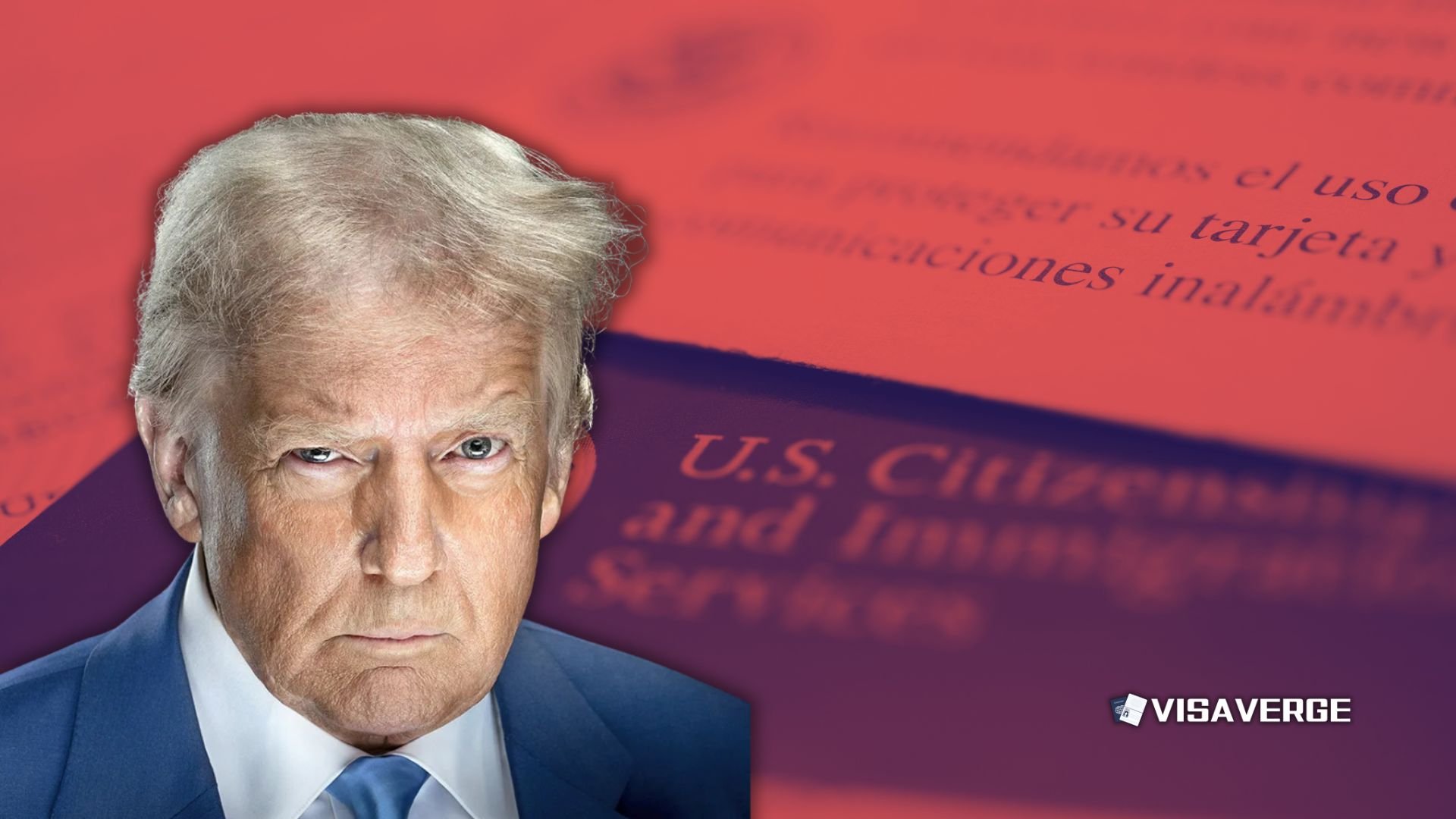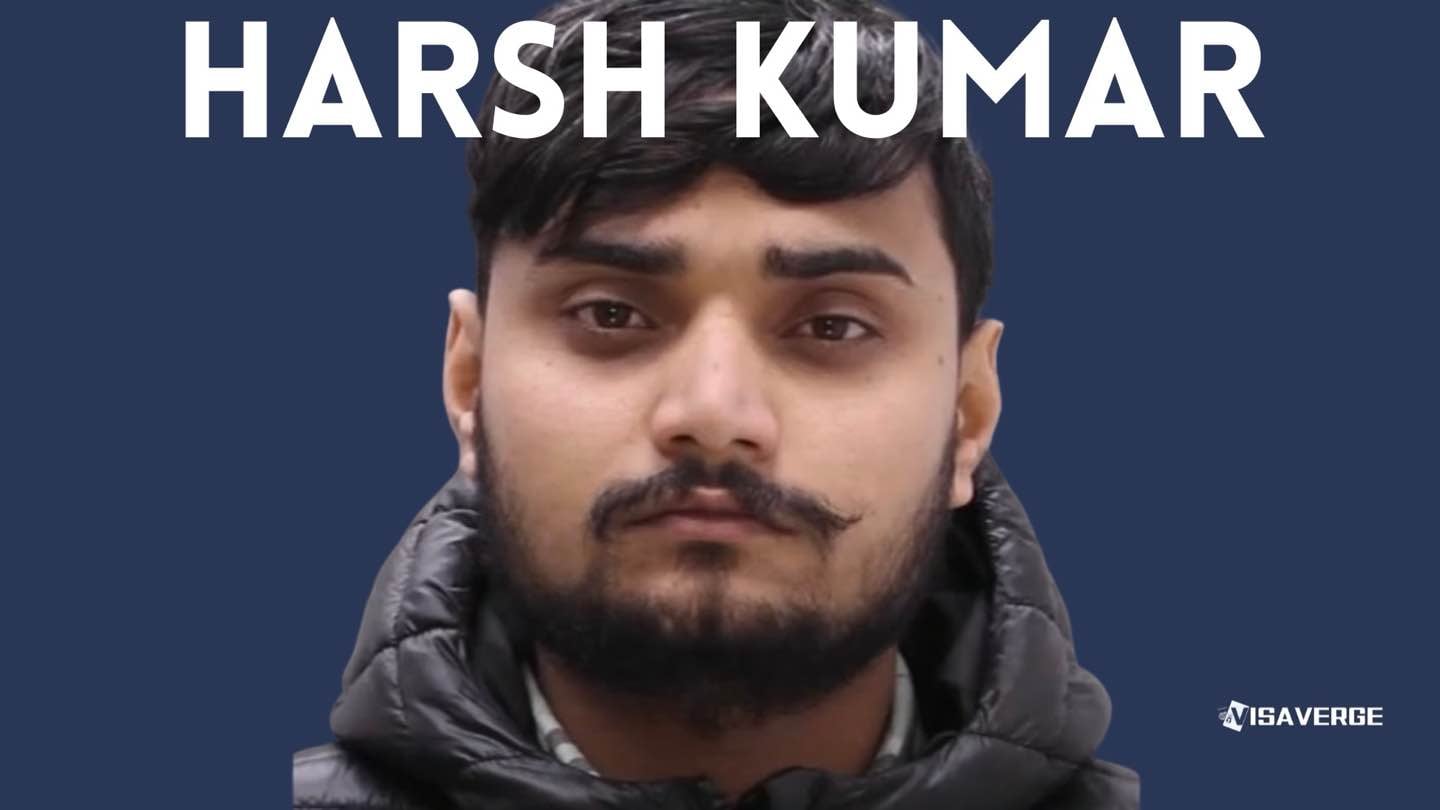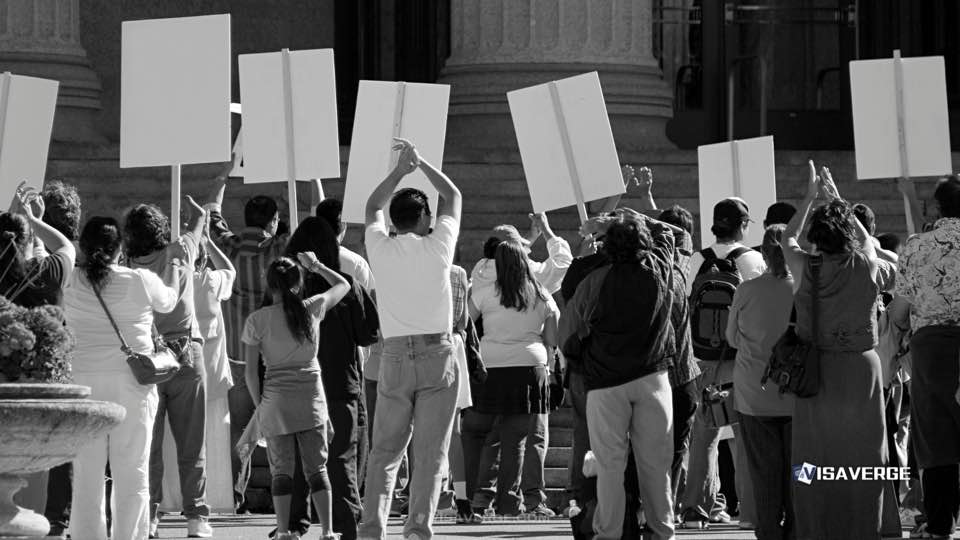On August 21, 2025, the U.S. State Department said it has placed all current visa holders under continuous vetting, opening a sweeping re-check of more than 55 million individuals with valid visas. Officials said the effort will run on a rolling basis, with visas revoked if new information shows a person is ineligible. Those in the United States who lose their visas may face removal.
The department said it now reviews social media, law enforcement and immigration records in the United States and abroad, and any data that comes to light after a visa is issued.
“We review all available information as part of our vetting, including law enforcement or immigration records or any other information that comes to light after visa issuance indicating a potential ineligibility,” the agency said. Grounds can include visa overstays, criminal activity, threats to public safety, terrorist activity, or support for terrorist organizations.

The policy applies to every visa category—students, temporary workers, tourists, and exchange visitors—without exceptions. It also works retroactively: people already in the United States on valid visas can be flagged later if new evidence appears. If a visa is revoked while the holder is in the country, immigration authorities can place the person in removal proceedings.
The announcement came alongside stricter front-end screening. In-person interviews are now required for all visa applicants, regardless of category. Since President Trump returned to office, the administration says it has revoked more than twice as many visas as the same period a year earlier, including nearly four times as many student visas. More than 6,000 student visas have been revoked since January 2025, tied to overstays, legal violations, or suspected support for terrorism.
In June, the administration reinstated and expanded national-level travel bans, blocking visa issuance to nationals of 12 countries and placing partial restrictions on seven others. Officials say the moves follow security incidents, including a June 2025 attack by an Egyptian national who had overstayed a tourist visa. President Trump has said the steps are aimed at “protecting U.S. national security and public safety” through tough immigration enforcement.
Policy Changes Overview
Under the new system, the U.S. State Department described a five-step process:
- Step 1: Continuous automated and manual checks of all visa holders across social media, law enforcement, and immigration databases.
- Step 2: Case referrals for deeper investigation if a potential violation or ineligibility is flagged.
- Step 3: Visa revocation if ineligibility is confirmed.
- Step 4: Removal proceedings for those inside the United States when revocation occurs.
- Step 5: Mandatory in-person interviews for new applicants with stricter document review.
Supporters say the scale is needed to close gaps exposed by overstays and other violations. Critics warn of overreach, privacy risks around social media screening, and due process problems if people are not given a fair chance to respond. They also worry about the chilling effect on international students, researchers, and skilled workers who help power U.S. campuses and companies.
VisaVerge.com reports that applicants and schools are already seeing delays and higher denial rates, adding to anxiety among families and employers. Immigration law practitioners note that the program’s size could strain resources, raising the risk of errors and wrongful revocations if files are rushed or context is missed.
Impact on Applicants and U.S. Institutions
For students, a revoked visa can derail a degree, research plan, or teaching role in the middle of a semester. A student who posts strong political views online—legal speech—may worry that a post is misread by an officer unfamiliar with local context.
Workers on temporary visas face similar concerns: a flagged case can threaten projects, payroll, and team planning with little notice. Tourists and exchange visitors may also see trips canceled or cut short.
Advocacy groups are preparing legal challenges over:
- How social media is used
- Whether notice is clear and timely
- What appeal options exist
Most appeals in visa matters are limited, and deadlines can be short. People placed in removal proceedings inside the United States should seek legal help quickly. Schools and employers are building contingency plans in case key students or staff are suddenly unable to travel or work.
Officials say the review is open-ended and will continue as new information feeds into government systems. The department has not set a completion timeline for screening more than 55 million individuals and has signaled that more measures could follow if new security incidents occur.
Practical steps for visa holders
- Keep documents current and carry proof of status when traveling inside the country.
- Follow the exact terms of the visa (including work and study limits) to avoid overstays.
- Save records of lawful activity that might help explain context if questions arise.
- If contacted by authorities or told a visa is under review, respond promptly and with well-documented evidence.
- Prepare for in-person interviews by bringing full proof of purpose, ties to home country, funding, and past compliance.
The new in-person interview requirement also means longer waits at consulates and tougher document checks. Old violations that were overlooked before may now draw attention during the interview or in later checks. Even after visa issuance, continuous vetting does not stop; any new flag can trigger re-review.
Colleges, labs, and employers are working with international offices and counsel to prepare for travel complications. Many are advising students and staff to:
- Check visa and travel status well before conferences, holidays, or fieldwork
- Explore remote options or backup staffing during peak periods of scrutiny
Broader implications and debate
For the broader public, the debate is sharp. Supporters argue the program closes loopholes and better protects communities. Critics see a drag on tourism, investment, and U.S. leadership in science and education.
Both sides agree the stakes are high: a program this large can affect:
- Families and personal plans
- Research timelines and collaborations
- Hiring plans and business projects
- Long-term ties with partner countries
Government guidance is available for visa status, entry rules, and program updates on the State Department’s Bureau of Consular Affairs website: https://travel.state.gov. The site posts alerts on processing changes, appointments, and country-level restrictions. People facing removal proceedings can seek information from U.S. Citizenship and Immigration Services and qualified legal providers.
Important takeaway: All visa holders are now under renewed scrutiny. Past files are being re-opened, and new information can trigger fast action. The most practical question for many is how to stay compliant and prepared in a system that checks—and re-checks—long after the visa stamp is issued.
This Article in a Nutshell
The State Department launched continuous vetting August 21, 2025, rechecking 55 million visa holders. Reviews use social media, law enforcement, and immigration records, can revoke visas retroactively, and trigger removal proceedings. Mandatory in-person interviews now apply to all applicants. Students and employers face delays, denials, and heightened compliance demands nationwide.













